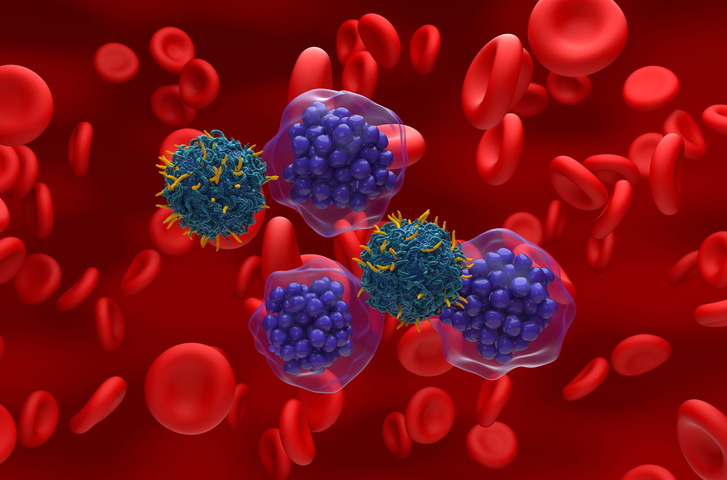
While narazaciclib as a single agent demonstrated moderate tumor growth inhibition in preclinical mantle cell lymphoma (MCL) models, narazaciclib plus ibrutinib reduced tumor spread by 65% and reduced malignant B-cell infiltration into the host bone marrow by 50%.
The study was led by Nuria Profitos-Peleja, PhD, of the Josep Carreras Leukaemia Research Institute in Spain, and presented at the 65th American Society of Hematology Annual Meeting & Exposition.
Dr. Profitos-Peleja and colleagues compared the efficacy and safety profiles of narazaciclib with the cyclin-dependent kinase inhibitors palbociclib, abemaciclib, or ribociclib in association with covalent (ibrutinib and acalabrutinib) and noncovalent (pirtobrutinib and ARQ-531) Bruton’s tyrosine kinase inhibitors (BTKi).
Using RNA sequencing and gene set enrichment analysis, the researchers found that narazaciclib demonstrated the highest antitumor activity among MCL cell lines. When combined with ibrutinib, narazaciclib achieved “significant synergistic antitumor activity” in both BTKi-sensitive and BTKi-resistant cells without detectable toxicity. Narazaciclib plus ibrutinib also regulated signatures associated with DNA repair, P53 signaling, and glycolytic activity.
“The combination was not associated with improved apoptosis, but rather with a slight but constant augmentation in G1 phase blockade and the down-modulation of cell cycle-associated transcriptome, although similar features were found when substituting narazaciclib with abemaciclib,” wrote Dr. Profitos-Peleja and colleagues.
Reference
Profitos-Peleja N, Ribeiro M, Parra J, et al. Narazaciclib, a differentiated CDK4/6 antagonist, prolongs cell cycle arrest and metabolomic reprogramming, enabling restoration of ibrutinib sensitivity in Btki-resistant mantle cell lymphoma. Abstract #4181. Presented at the 65th ASH Annual Meeting & Exposition; December 9-12, 2023; San Diego, California.






 © 2025 Mashup Media, LLC, a Formedics Property. All Rights Reserved.
© 2025 Mashup Media, LLC, a Formedics Property. All Rights Reserved.